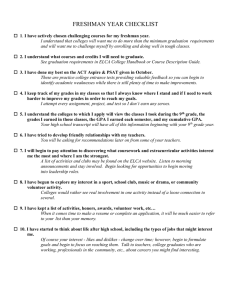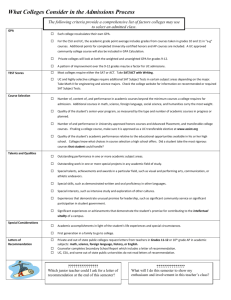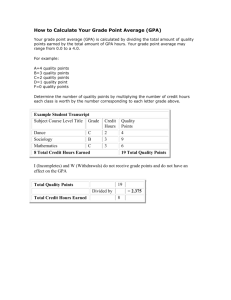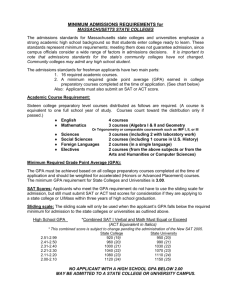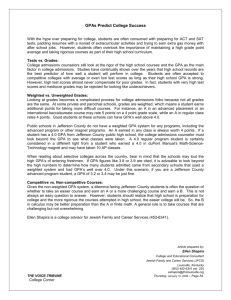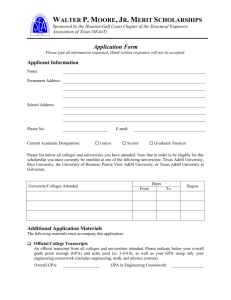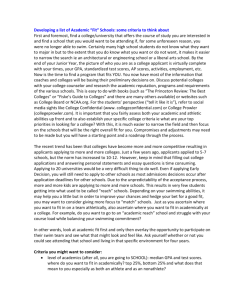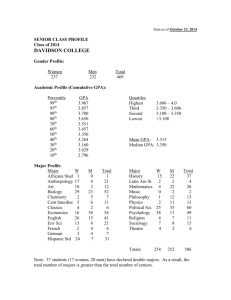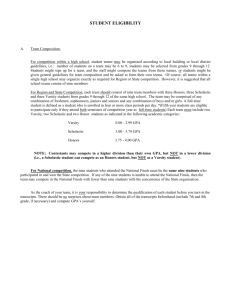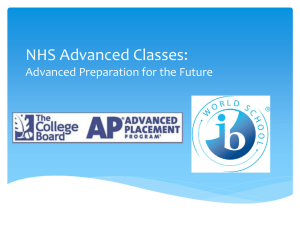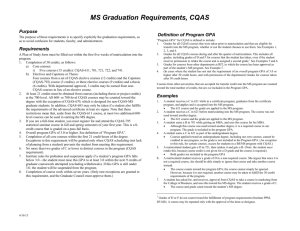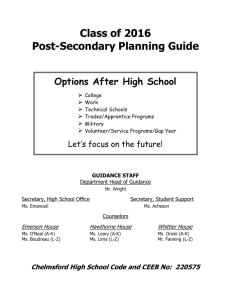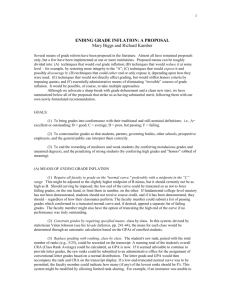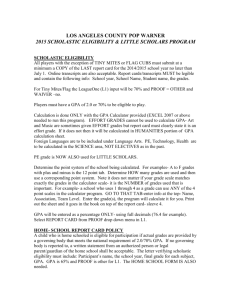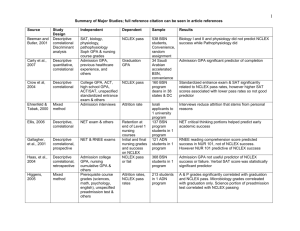College Prep Time line for 9th Graders PLANNING FOR COLLEGE
advertisement
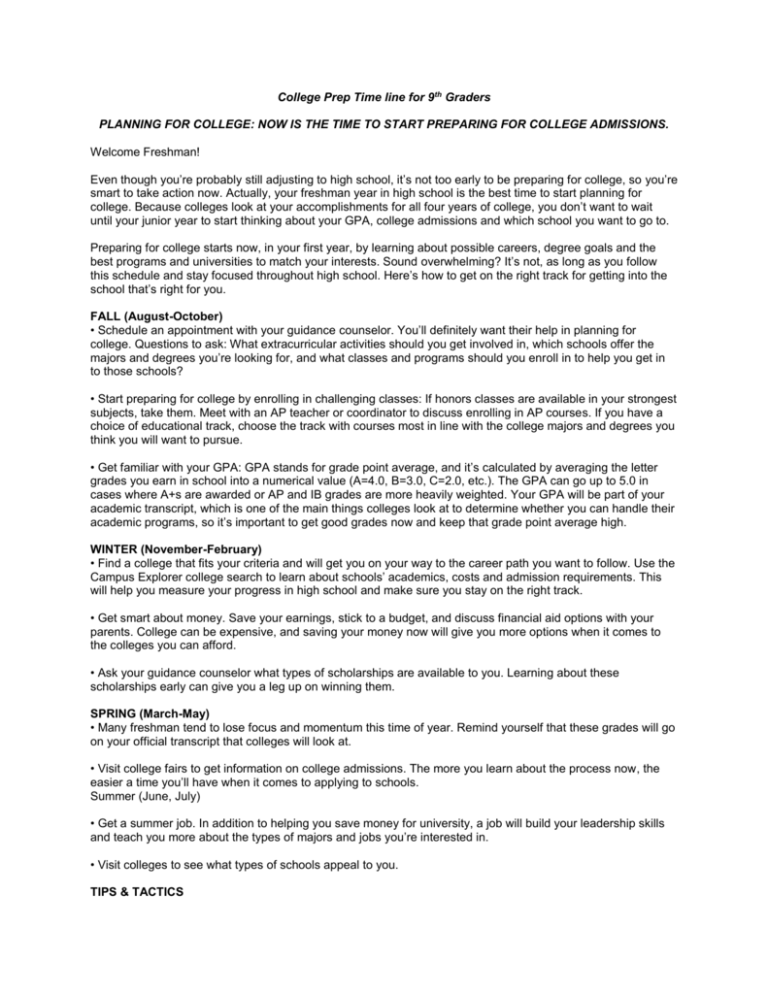
College Prep Time line for 9th Graders PLANNING FOR COLLEGE: NOW IS THE TIME TO START PREPARING FOR COLLEGE ADMISSIONS. Welcome Freshman! Even though you’re probably still adjusting to high school, it’s not too early to be preparing for college, so you’re smart to take action now. Actually, your freshman year in high school is the best time to start planning for college. Because colleges look at your accomplishments for all four years of college, you don’t want to wait until your junior year to start thinking about your GPA, college admissions and which school you want to go to. Preparing for college starts now, in your first year, by learning about possible careers, degree goals and the best programs and universities to match your interests. Sound overwhelming? It’s not, as long as you follow this schedule and stay focused throughout high school. Here’s how to get on the right track for getting into the school that’s right for you. FALL (August-October) • Schedule an appointment with your guidance counselor. You’ll definitely want their help in planning for college. Questions to ask: What extracurricular activities should you get involved in, which schools offer the majors and degrees you’re looking for, and what classes and programs should you enroll in to help you get in to those schools? • Start preparing for college by enrolling in challenging classes: If honors classes are available in your strongest subjects, take them. Meet with an AP teacher or coordinator to discuss enrolling in AP courses. If you have a choice of educational track, choose the track with courses most in line with the college majors and degrees you think you will want to pursue. • Get familiar with your GPA: GPA stands for grade point average, and it’s calculated by averaging the letter grades you earn in school into a numerical value (A=4.0, B=3.0, C=2.0, etc.). The GPA can go up to 5.0 in cases where A+s are awarded or AP and IB grades are more heavily weighted. Your GPA will be part of your academic transcript, which is one of the main things colleges look at to determine whether you can handle their academic programs, so it’s important to get good grades now and keep that grade point average high. WINTER (November-February) • Find a college that fits your criteria and will get you on your way to the career path you want to follow. Use the Campus Explorer college search to learn about schools’ academics, costs and admission requirements. This will help you measure your progress in high school and make sure you stay on the right track. • Get smart about money. Save your earnings, stick to a budget, and discuss financial aid options with your parents. College can be expensive, and saving your money now will give you more options when it comes to the colleges you can afford. • Ask your guidance counselor what types of scholarships are available to you. Learning about these scholarships early can give you a leg up on winning them. SPRING (March-May) • Many freshman tend to lose focus and momentum this time of year. Remind yourself that these grades will go on your official transcript that colleges will look at. • Visit college fairs to get information on college admissions. The more you learn about the process now, the easier a time you’ll have when it comes to applying to schools. Summer (June, July) • Get a summer job. In addition to helping you save money for university, a job will build your leadership skills and teach you more about the types of majors and jobs you’re interested in. • Visit colleges to see what types of schools appeal to you. TIPS & TACTICS • Keep a calendar of all of your deadlines and test dates. • In addition to getting good grades and keeping up your GPA, you also want to pursue extracurricular activities, like clubs, sports and volunteer opportunities. Universities like to see well-rounded students, not just a strong academic transcript, so taking leadership roles in these areas will help your college application stand out. • Start a list of all of your awards and extracurricular activities, along with the dates you participated and the names and contact information of people who you might want to ask to write a letter of recommendation for you. Keeping track of all of this information now will make it easier for you to include it on your college applications.
